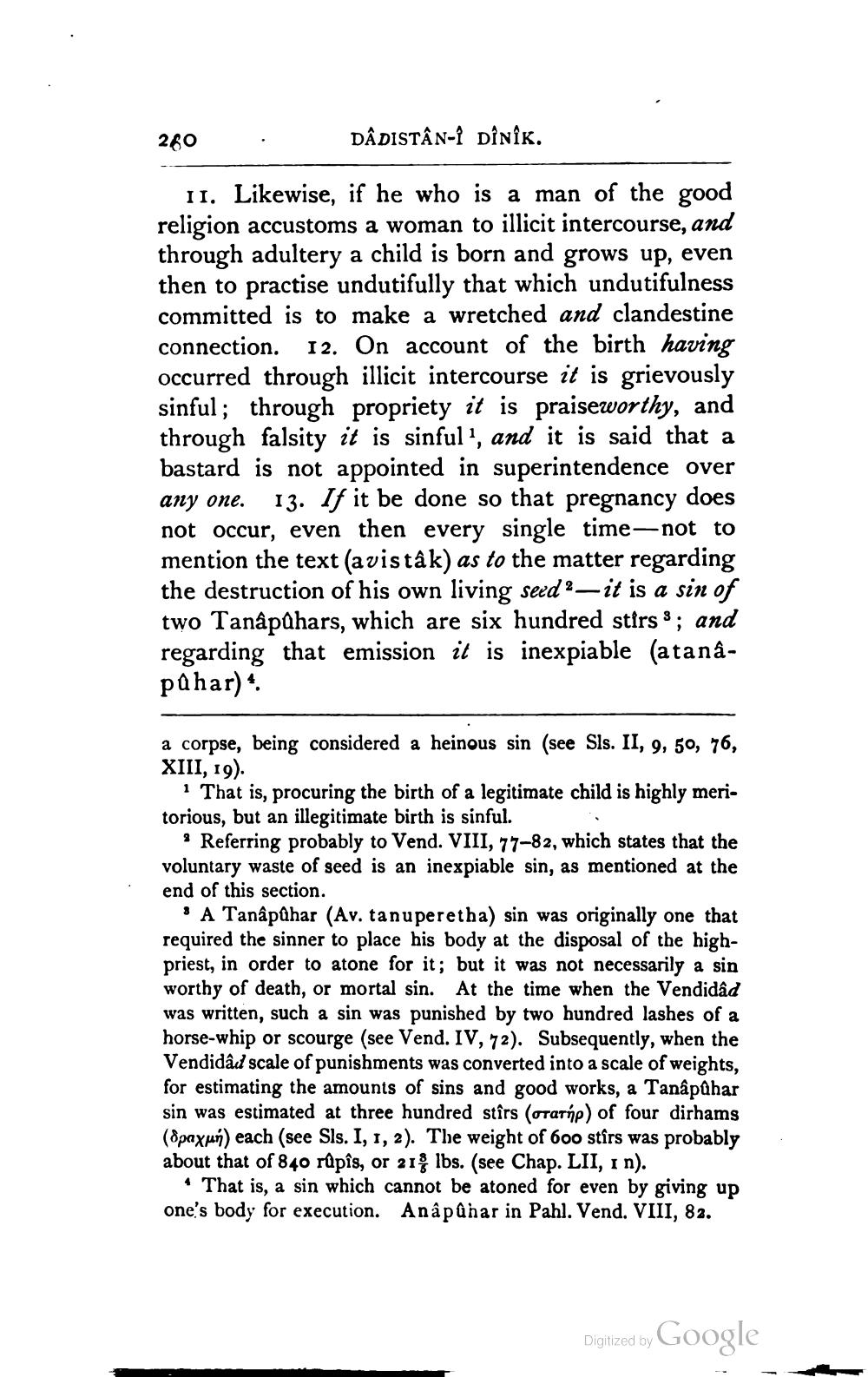________________
260
·
DÂDISTÂN- DÎNÎK.
11. Likewise, if he who is a man of the good religion accustoms a woman to illicit intercourse, and through adultery a child is born and grows up, even then to practise undutifully that which undutifulness committed is to make a wretched and clandestine connection. 12. On account of the birth having occurred through illicit intercourse it is grievously sinful; through propriety it is praiseworthy, and through falsity it is sinful", and it is said that a bastard is not appointed in superintendence over any one. 13. If it be done so that pregnancy does not occur, even then every single time—not to mention the text (avistâk) as to the matter regarding the destruction of his own living seed?—it is a sin of two Tanâpahars, which are six hundred stirs 3; and regarding that emission it is inexpiable (atanapahar)
a corpse, being considered a heinous sin (see Sls. II, 9, 50, 76, XIII, 19).
That is, procuring the birth of a legitimate child is highly meritorious, but an illegitimate birth is sinful.
* Referring probably to Vend. VIII, 77-82, which states that the voluntary waste of seed is an inexpiable sin, as mentioned at the end of this section.
A Tanâpühar (Av. tanuperetha) sin was originally one that required the sinner to place his body at the disposal of the highpriest, in order to atone for it; but it was not necessarily a sin worthy of death, or mortal sin. At the time when the Vendidad was written, such a sin was punished by two hundred lashes of a horse-whip or scourge (see Vend. IV, 72). Subsequently, when the Vendidad scale of punishments was converted into a scale of weights. for estimating the amounts of sins and good works, a Tanâpühar sin was estimated at three hundred stîrs (orarúp) of four dirhams (Spaxun) each (see Sls. I, 1, 2). The weight of 600 stîrs was probably about that of 840 rūpîs, or 21 lbs. (see Chap. LII, 1 n).
That is, a sin which cannot be atoned for even by giving up one's body for execution. Anâ pühar in Pahl. Vend. VIII, 82.
Digitized by Google




